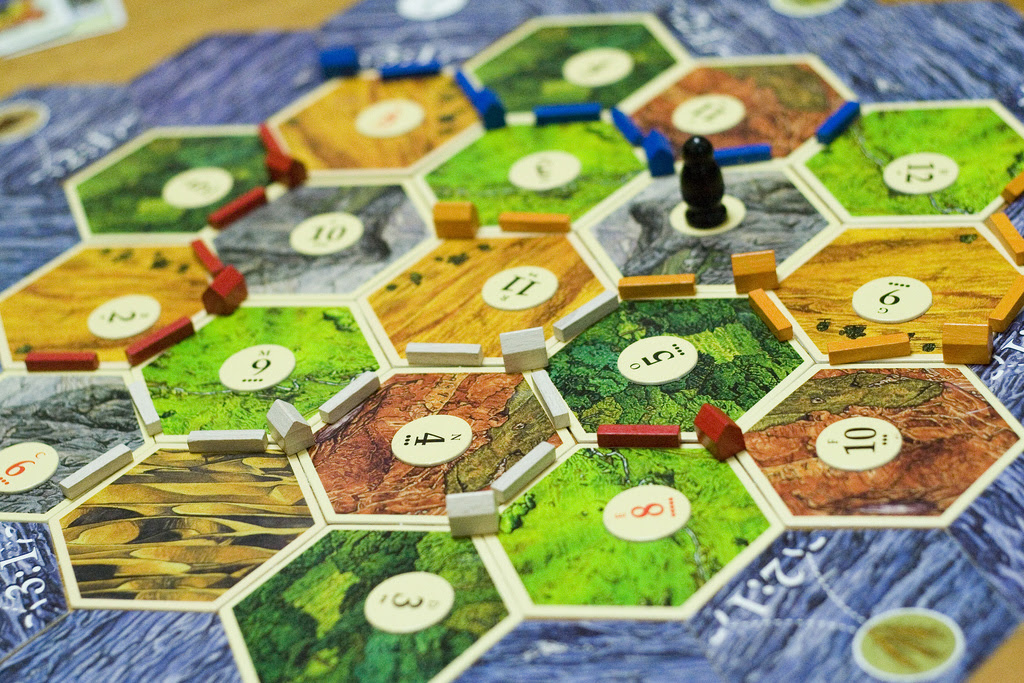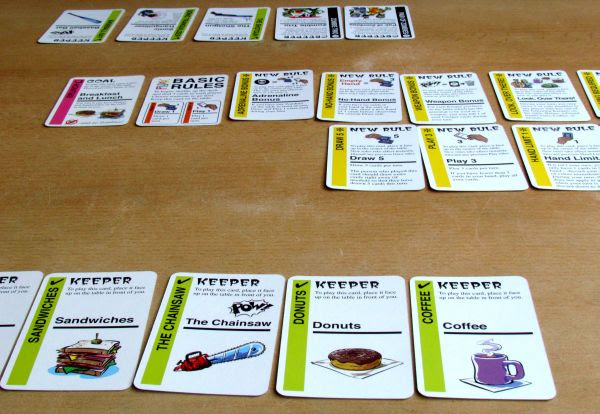Juergen Moltmann said that the way to change the world is by playing games.
So I want to talk a bit about the Board Game Renaissance. That is going on in the world right now, and it’s theological importance. A lot of it comes from a new way of thinking about board games, which began in Germany and has since expanded internationally.
American Style board games like Battleship, Risk, and Monopoly, tend to feature militaristic themes, with direct player interaction, player elimination and zero-sum win conditions. This is not only emblematic of certain cultural values, it’s also practically problematic especially in family situations because “Daddy just shot you dead and now you can’t play, you have to sit and watch Daddy and Mommy destroy each other” isn’t fun and doesn’t lead to happy memories.
Monopoly in particular was devised as a thought experiment to teach children how horrible and destructive capitalism is. You are supposed to feel desperate and frustrated, that’s a feature of the game.
German Style board games, by contrast, deal with primarily agricultural and economic themes, avoid player elimination, indirect competition and often cooperation, and victory points (non-zero-sum) The strategy of these games is usually quite a bit deeper, and less dependent upon luck.
The most popular one which you are probably familiar with is Settlers of Catan, By Rio Grande Games

I have a love-hate relationship with Settlers. I love it because it introduced millions of people to German Style games. I hate it because among these games it is one of the worst. The winning strategy is easily discernable after the first game or two and after that it’s boring. With that said, everyone loves it, your family probably will too, so if you are looking for a game, consider grabbing it.
I can more recommend more heartily, Ticket to Ride, by Days of Wonder

This one involves building transcontinental railroads (What continent depends on the edition, but the United States edition is really good). Everyone plays until the end, and players strategize over when to claim the best routes, but never attack one another. The strategy for this one is actually really deep despite the rules being simple enough for small children.
Another really good one is Tokaido, By Passport

The story of this one is that all of the players are fellow travelers on the road from Tokyo to Kyoto, and you compete to be the player who enjoys their peaceful journey the most. This involves seeing the most views, eating the best variety of food, and buying impressive collections of souvenirs. Because there are so many opportunities along the Tokaido, it takes a practice game to cement the rules, but once you learn them it is a lot of fun. One of my favorite things about this one is that there are absolutely no dice. You decide how far you move.
Too much kid stuff? Ready for a darker theme? Pandemic, By Z-Man

In this game all the human players work together. There are several diseases that have broken out, and only you, the agents of the WHO can save the world from total destruction. You each have different abilities, and try to save the world “better” than one another, but mostly you just try to prevent the apocalypse. Everybody wins if you cure the diseases, nobody wins if the outbreak exterminates all human life.
One last one just for fun, Fluxx, by local Austin Game studio, Sam Jackson Games

There is almost no strategy possible with this one, because the win conditions can change at any moment. It’s just ridiculous fun. There are theme editions available for whatever your family likes, like Pirates, Oz, or Monty Python. As far as I am aware there is no “Reformed Theology Fluxx” at least not yet

